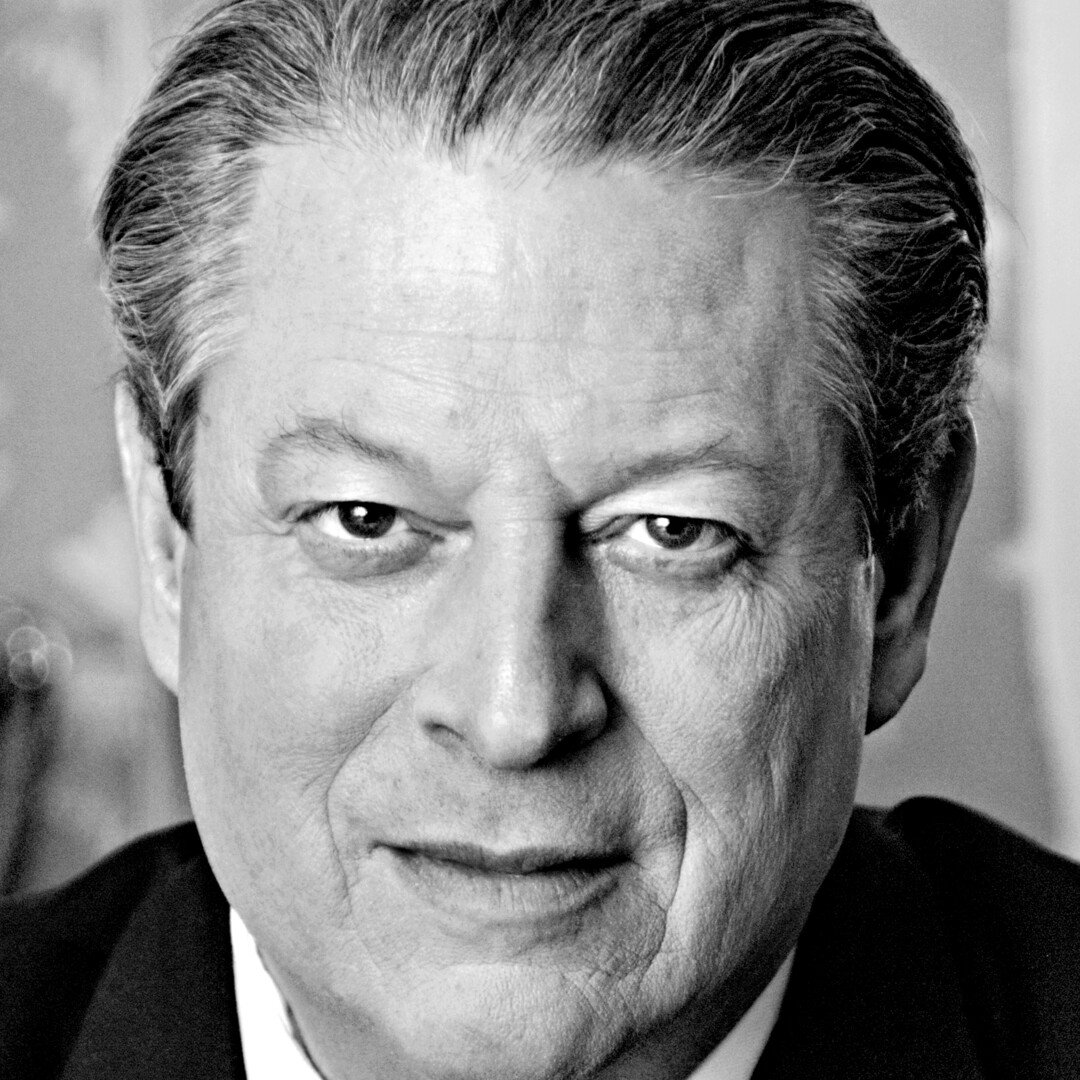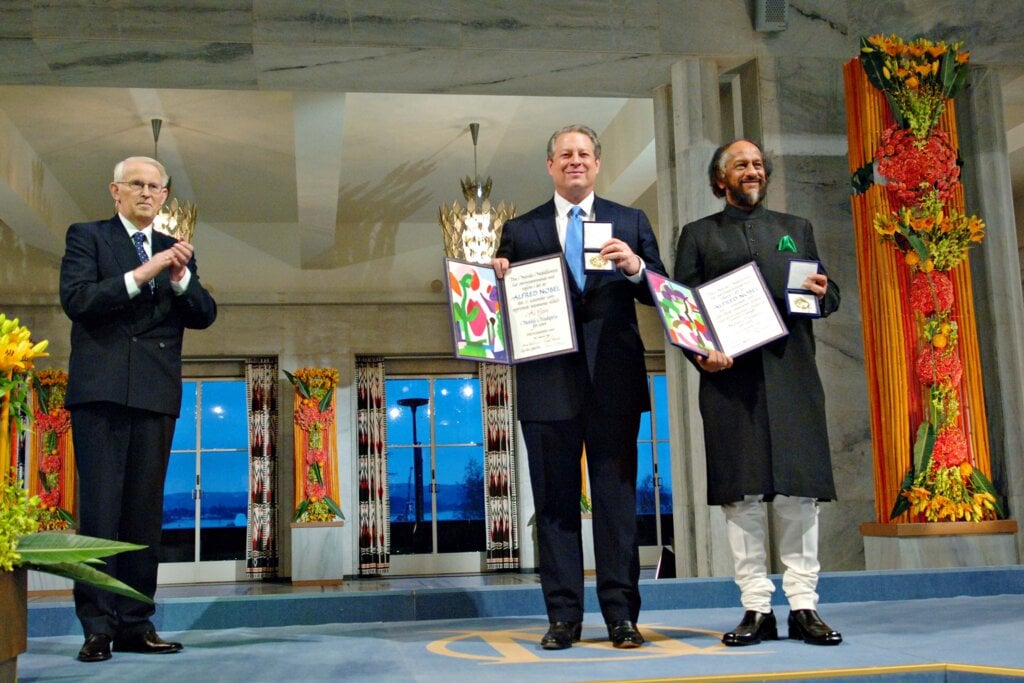Al Gore
Speed read
Al Gore was awarded the Nobel Peace Prize, jointly with the Intergovernmental Panel of Climate Change (IPCC), for his efforts to disseminate greater knowledge about man-made climate change, and to lay the foundations for the measures that are needed to counteract such change.

Full name: Albert Arnold (Al) Gore Jr.
Born: 31 March 1948, Washington, D.C., USA
Date awarded: 12 October 2007
Criticism of Gore
Al Gore and the film An inconvenient truth quickly met criticism. Right-wingers in the US claimed that the film aimed to scare politicians into subsidising green technology in which Gore had invested. Most debate was about claims by climate-change sceptics that the film was full of unscientific propaganda. In the UK, this led to a court case. The judge found that the film’s overall message was in line with climate research, although it did contain some minor factual errors. He held that the film could be shown in UK schools as long as pupils were informed of these errors.
"The world has a fever and we must stop it."
Al Gore, 11 May 2007
Champion of the environment
Former US Vice President, Al Gore, has long been one of the world’s leading environmentalists. He became aware of the global environmental challenges during his student years, and he was one of the first US politicians to speak of the greenhouse effect. Al Gore has demonstrated a strong commitment to the struggle against man-made climate change through political activity, lectures, films and books. He has raised awareness about the seriousness of the climate threat in many parts of the world. He consistently urges authorities and individuals to act now. His film, An Inconvenient Truth won an Oscar in 2007. By awarding the Nobel Peace Prize to Al Gore, the Nobel Committee is highlighting how the environmental struggle and threats to global security are interlinked.
From the announcement speech
The Norwegian Nobel Committee has decided that the Nobel Peace Prize for 2007 is to be shared, in two equal parts, between the Intergovernmental Panel on Climate Change (IPCC) and Albert Arnold (Al) Gore Jr. for their efforts to build up and disseminate greater knowledge about man-made climate change, and to lay the foundations for the measures that are needed to counteract such change. Extensive climate changes may induce large-scale migration and lead to greater competition for the earth’s resources. There may be increased danger of violent conflicts and wars, within and between states. Ole Danbolt Mjøs, Oslo, 12 October 2007.

Climate changes have different impacts
It is not necessarily those countries that are responsible for the greatest emissions that will suffer most as a result of climate changes. On the contrary, it is the poorest countries that will be hardest hit. The Chairman of the IPCC, Dr. Rajenda K. Pachauri has said that he is concerned about the fact that some countries are disregarding the impact that their emissions are having in other countries. He thinks that the ethical dimensions of this problem are being completely ignored. This has also been expressed previously by Al Gore, who said that: “The climate crisis is not a political issue – it is a moral and spiritual challenge to all of humanity.”
Learn more
Former Vice President Al Gore is chairman of Current TV, an award winning, independently owned cable and satellite television nonfiction network for young people based on viewer-created content and citizen journalism ...
Disclaimer: Every effort has been made by the publisher to credit organisations and individuals with regard to the supply of photographs. Please notify the publishers regarding corrections.
Nobel Prizes and laureates
Six prizes were awarded for achievements that have conferred the greatest benefit to humankind. The 12 laureates' work and discoveries range from proteins' structures and machine learning to fighting for a world free of nuclear weapons.
See them all presented here.
